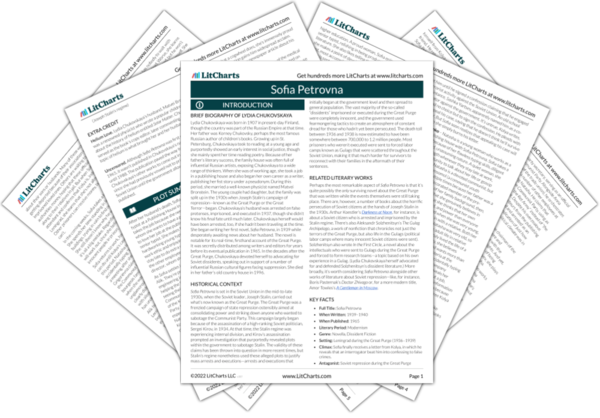Despite Kolya’s unjust arrest, Sofia still believes that the Soviet government is just and reasonable. Again, her belief isn’t a sign of naivety or gullibility, but rather an indication of her strong political allegiance to the Soviet Union. What’s interesting, though, is that Sofia doesn’t seem to care that much about communist ideals, as evidenced by her lack of interest in politics. Her allegiance to the Communist Party, then, is more a matter of conformity than anything else.
